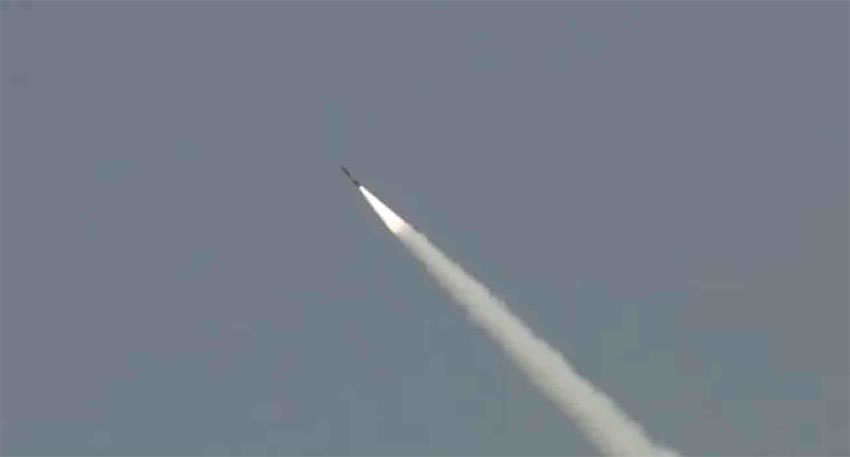
The test launch comes amid heightened tensions between Pakistan and India in the wake of New Delhi’s aggressive measures in the wake of a deadly attack in occupied Kashmir. On April 22, the attack in Pahalgam killed 26 people, mostly tourists, in one of the deadliest assaults since 2000.
“The launch was aimed at ensuring the operational readiness of troops and validating key technical parameters, including the missile’s advanced navigation system and enhanced maneuverability features,” the military’s media affairs wing said on Saturday in a press release.
The launch was a part of “Ex Indus” and was witnessed by the commander of the Army Strategic Forces Command (AFSC), senior officials from the Strategic Plans Division and the AFSC, as well as scientists and engineers from Pakistan’s strategic organisations, the ISPR said.
It also released a video of the successful launch.
President Asif Ali Zardari, Prime Minister Shehbaz Sharif, Chairman Joint Chiefs of Staff Committee General Sahir Shamshad Mirza and the services chiefs extended their congratulations to the participating troops, scientists, and engineers, the ISPR said.
“They expressed complete confidence in the operational preparedness and technical proficiency of Pakistan’s Strategic Forces to ensure credible minimum deterrence and safeguard national security against any aggression,” the statement added.
On Thursday, Chief of Army Staff (COAS) General Asim Munir asserted that any “misadventure” by India would be met with a “swift, resolute and notch-up response”. The next day, the army’s top brass also warned India of a “sure and decisive” response should it attempt to impose war.
As temperatures remain high, diplomatic channels have been engaged to prevent conflict, with the United States and the European Union contacting top Pakistani and Indian leaders.




